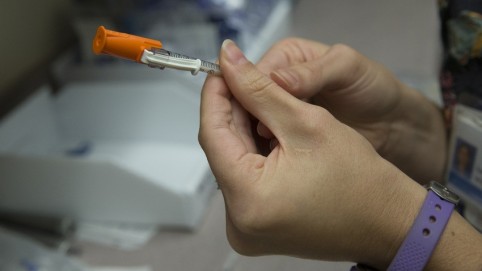Find a practice to try with your team

Better Attendance Brings Big Rewards
Last-minute sick calls dropped by 40% after team members learned about the negative impact of such calls and explored time-off options.
Details
Why This Matters
- Decreasing last-minute sick calls protects staff members from stress and burnout that affect morale and performance.
Test of Change
- Educating the entire team on the impact of last-minute sick calls and rewarding them for perfect attendance.

All Hands for kp.org
Primary care team used the entire staff for a sign-up promotion, they posted signs to encourage registration, and spoke with patients about the benefits of KP.org.
Details
Why This Matters
- Members are better served and get better care when signed up with KP.org
Test of Change
- Getting all team members involved in the promotional effort

Transformed Team Tracks Transplant Patients
UBT dramatically improves the percentage of kidney transplant patients getting follow-up screenings and services.
Details
Why This Matters
- Regular follow-up care is crucial for kidney transplant patients, who are at risk for a host of complications, including cancer and pneumonia.
Test of Change
- Team hosted a special clinic for post-transplant patients, enabling them to get all their follow-up care in one visit

Needle-Stick Injuries Drop to 0
Surgery team creates safe way to pass sharps to each other and reinforces messaging with fliers.
Details
Why This Matters
- Reducing needle-stick injuries protects our employees and ensures they are ready and able to care for our members.
Test of Change
- Creating a “Pass Free Zone” to discourage team members from directly handing needles and other sharp objects to each other

Staff Buddies Up to Inform Patients
Positive patient responses for staff communications increased 17 percent for the department in three months.
Details
Why This Matters
- Patients express appreciation when informed about wait times and delays, which shows respect for their time and eases anxiety.
Test of Change
- Schedulers and receptionists from two clinics paired up for one-hour shifts during predictably busy times to keep patients informed about wait times.
